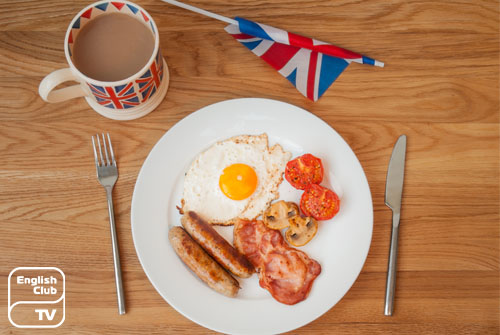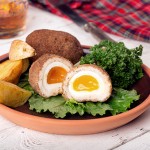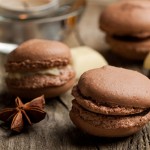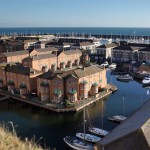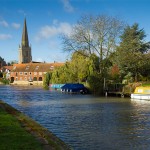Britain has a vast and varied cuisine. Britain has a culinary reputation that is enviable. It is a well-known fact that some of the best chefs in the world hail from Great Britain. English cooking is not new and in the past English food was considered to be amongst the best worldwide. Traditional English cooking is substantial, that is a combination of pure and wholesome fare. The belief of having four meals a day is a longstanding tradition in Britain.
A Brief History
English cooking has been multicultural, where cooking has been influenced by the Romans in ancient times and by the French in medieval times. Spices such as cinnamon, mace, saffron, pepper, nutmeg, and ginger became a part of Britain’s culinary ingredients through the invasion of the Frankish Normans. Sugar was considered to be a rare and expensive element and came to Britain at this time. The only sweeteners before sugar were honey and fruit juices. Amongst the medieval cookery books that remain today, English dishes consist of the use of a variety of spices available, where chefs have transformed raw ingredients into a traditional and delicious meal. The English aristocracy also had a reputation for eating French food that distinguished them from mere peasants.
Britain is an empire, and one of the benefits was that quite a bit about the usage of spices came from the colonies. Tea came from East Asia, curry style spicing from India, which developed spicy sauces including mint sauce, ketchup, devilled sauce and Worchester sauce. Amongst the national dishes in Britain, curry ranks in the first five.
English pastries and cakes go traditionally together with religious holidays. Good Friday sees people eating hot cross buns, with Simnel cake traditionally made for Mothering Sunday. Christmas is famous for its plum pudding and Epiphany for its Twelfth Night cake.
British Cuisine Today
English cooking began to look for a new direction by the late 1980s. Chefs began looking for inspiration closer to home. Rich traditions that utilized diverse ingredients gave way to modern British food. When visiting London, the best of British food can be enjoyed. London serves not just the best food in the country but also in the world. Traditional English dishes like roast beef, Yorkshire pudding, steak and kidney pie, Cornish pasties, treacle tart, bread and butter pudding, fish and chips or spotted dick remain popular choices.
The national culinary pride remains to be roast beef. Roast beef is usually served with roasted potatoes, two vegetables, Yorkshire pudding, horseradish, mustard and gravy at midday on Sunday. However, recent times have seen an emphasis on finer and fresher ingredients. Fish is still part of the English diet, and popular choices for fish and chips include sole, hake, haddock, plaice and cod. Oily fishes like herrings, pilchards, and mackerels, lobster, oysters and eel the last known for being cooked in a puff pastry with lemon, shallots, and parsley.
Vocabulary:
| Vast [vɑːst] | an Epiphany [ən ɪˈpɪf(ə)ni] |
| varied [ˈvɛːrɪd] | to utilize [tu: ˈjuːtɪlʌɪz] |
| a cuisine [ə kwɪˈziːn] | diverse [dʌɪˈvəːs] |
| enviable [ˈɛnvɪəb(ə)l] | a kidney [ə ˈkɪdni] |
| hail [heɪl] | treacle [ˈtriːk(ə)l] |
| substantial [səbˈstanʃ(ə)l] | a tart [ə tɑːt] |
| pure [pjʊə] | gravy [ˈɡreɪvi] |
| wholesome [ˈhəʊls(ə)m] | a finer [ə ˈfaɪnə] |
| a fare [ə feə] | a hake [ə heɪk] |
| an invasion [ən ɪnˈveɪʒ(ə)n] | haddock [ˈhadək] |
| a sweetener [ə ˈswiːt(ə)nə] | plaice [pleɪs] |
| raw [rɔː] | cod [kɒd] |
| to distinguish [tu: dɪˈstɪŋɡwɪʃ] | herring [ˈhɛrɪŋ] |
| spicing [ˈspaɪsɪŋ] | pilchard [ˈpɪltʃəd] |
| a sauce [ə sɔːs] | mackerel [ˈmak(ə)r(ə)l] |
| devilled [ˈdɛvld] | lobster [ˈlɒbstə] |
| pastry [ˈpeɪstri] | oyster [ˈɔɪstə] |
| a bun [ə bʌn] | eel [iːl] |


